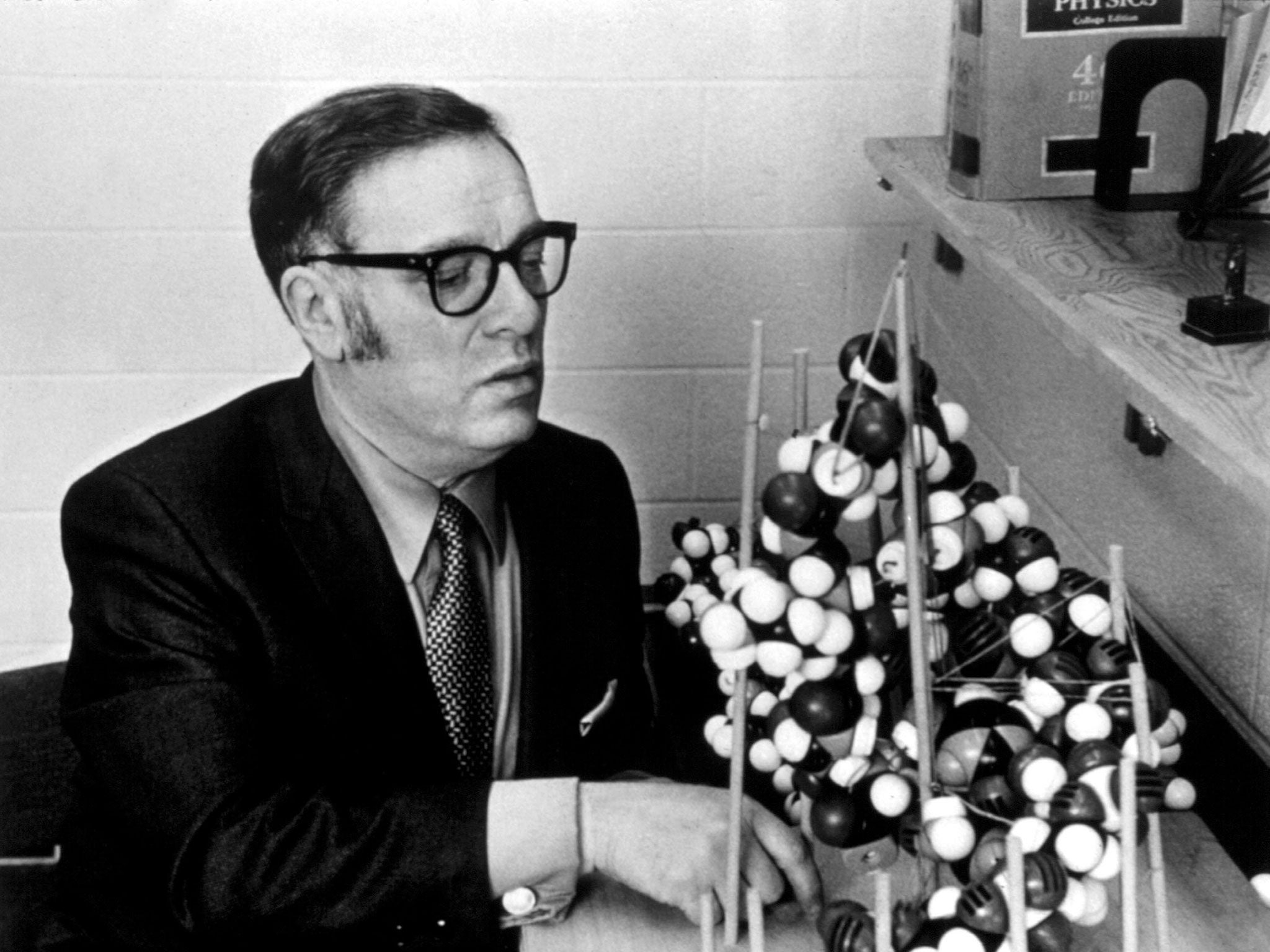I, Robprof: FBI feared much-loved science fiction author Isaac Asimov was Soviet agent
Papers show that he was investigated on suspicion of being a spy

Isaac Asimov was one of America’s most prolific and best-loved science fiction authors, publishing more than 500 volumes in a career that spanned five decades.
But newly released papers show that, in the 1960s, he was unknowingly embroiled in intrigue more suited to a John Le Carre novel, as the FBI investigated him on suspicion of being a Soviet spy.
Never-before-seen documents reveal that the agency acted to investigate Asimov in 1965 receiving a leaked US Communist Party list which included the I, Robot author’s name. The list was of individuals who had either been contacted by the party or were considered “possibly amenable to such as supporters”.
There were no notations behind the writer’s name and the informant – the New England District chairman of the US Communist Party – said he “could not determine why his name was listed or whether he had been contacted”.
The FBI files on Asimov show that the agency scrutinised his records to see if he was a notorious Soviet informant codenamed Robprof. Asimov had been working as a biochemist at Boston University for more than a decade, and the FBI memo reviewed his work in academia to see if he could be Robprof who, they said, was a “noted person in the field of microbiology”.
“[The FBI office in] Boston is not suggesting that Asimov is Robprof,” the memo commented, “But it should be considered as a possibility in light of his background, which contains information inimical to the best interests of the United States.”
The FBI continued to monitor Asimov for at least the next two years. In 1967 a memo in the files noted a change of address, as well as checks on his credit history and criminal record. Those, and his immigration files, failed to unearth any issues. That marked the last note in Asimov’s FBI file.
News of the FBI’s suspicions about the sci-fi writer’s political leaning emerged after the US open government campaign group MuckRock put in a freedom of information request to see his FBI file.
The request also turned up the suspicions of an unnamed informer who accused Asimov of being a communist.
The source wrote to J Edgar Hoover, the first director of the FBI, in 1960: “Asimov may be quite all right. On the other hand … ” He enclosed his correspondence with Asimov and said his reason for airing his suspicions was “because I question the position he takes with respect to the first nuclear power plants being built by Soviet Russia”. In fact, Asimov was correct: the USSR had built the first nuclear reactor.
Despite the later scrutiny of Asimov, at this stage Hoover dismissed the anonymous writer’s concerns and returned the correspondence with pamphlets on communism. He noted to himself: “We have no particular interest in these observations”.
Asimov is seen as one of the most important science fiction writers in history, possibly best known for his Foundation series. He drew up the Three Laws of Robotics, which govern how artificial intelligence should behave.
He was born in 1920 in Petrovichi, Russia, but his family emigrated to New York in 1923 where his father ran a candy store. He died in 1992 of heart and kidney failure.
Subscribe to Independent Premium to bookmark this article
Want to bookmark your favourite articles and stories to read or reference later? Start your Independent Premium subscription today.

Join our commenting forum
Join thought-provoking conversations, follow other Independent readers and see their replies